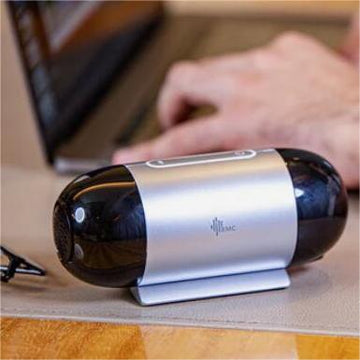If you have difficulty tolerating the forced air from a BiPAP machine, you may be able to overcome this by using a machine with a "ramp" feature. This setting allows you to start with low air pressure and then gradually increase the air pressure to your prescribed setting as you fall asleep. Your doctor can adjust the rate of increase. If this feature does not help, talk to your doctor about switching to a machine that automatically and constantly adjusts the pressure while you are sleeping, such as a bi-level positive airway pressure (BPAP) machine, which delivers more pressure when you inhale and less when you exhale.

If you are feeling claustrophobic when using your BiPAP mask, practice using it while you are awake. Start by just holding the mask up to your face without any of the other parts. Once you are comfortable with that, try wearing the mask with the straps. Then, try holding the mask with the attached hose on your face, without using the straps. Turn on the BiPAP machine, with the ramp feature turned on if available. Then, do this using the straps too. Finally, try sleeping with the mask and machine on. Relaxation exercises, such as progressive muscle relaxation, may help reduce anxiety related to BiPAP use. If you are still feeling claustrophobic, talk to your doctor or BiPAP supplier. It may help to get a different size mask or try a different style, such as one that uses nasal pillows.
If your mask is leaking or not fitting properly, you may not be receiving the full air pressure you need, and your skin may become irritated. The mask may also direct air into your eyes, causing them to become dry or teary. To get a better fit, try adjusting the pads and straps. If the mask covers your nose, make sure it doesn't sit too high on the bridge of your nose. You may need to ask your BiPAP supplier to help you find a different size mask, especially if your weight has changed significantly. Alternatively, you could try a different style mask, such as one that uses nasal pillows. If you experience skin deterioration or sores, such as on your nose, contact your doctor immediately.
Wearing the mask alone for a period of time during the day can help you become accustomed to the feeling and make it easier to fall asleep at night. Machines with the ramp feature, which gradually increases the air pressure to your prescribed pressure setting as you drift off, may make you more comfortable. Additionally, following good general sleep habits can be beneficial. Exercise regularly, avoid caffeine and alcohol before bedtime, and try to relax with activities such as taking a warm bath before bed. Don't go to bed until you're feeling tired.


